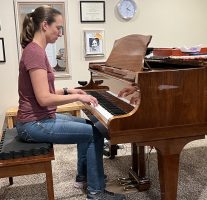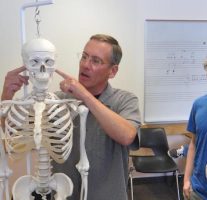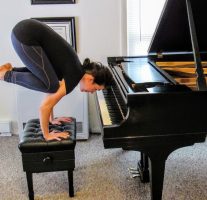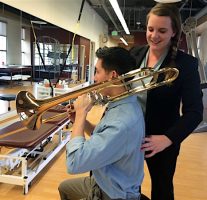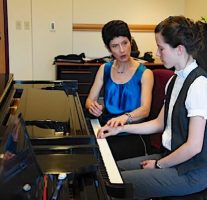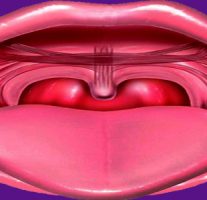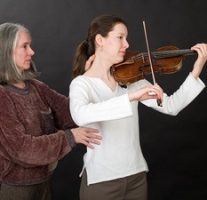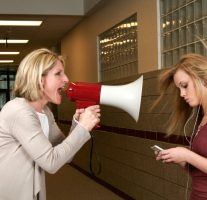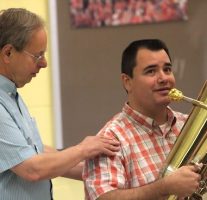Preventing discomfort or pain for pianists starts by addressing the underlying cause of the problem.
Body Mapping Helps Musicians
Body Mapping enhances musical performance by facilitating ease of movement and decreasing the possibility of injury.
Stage Fright: An Alternative Solution
Stage fright, also known as performance anxiety, is one of the most common and perplexing problems we musicians face. You’re in great company if you become nervous when you perform.
How Yoga Benefits Musicians
Yoga is an ideal exercise for musicians. It’s a physical activity accessible to all fitness levels and embraced by professional musicians of all ages and instruments.
Majoring in Music and Sleep: A Paradox?
Majoring in music and sleep; can you really fit these into the same sentence? The campus culture, especially if you’re a music major, may give lip service
Preventing Injury for Instrumental Musicians
Preventing injury for instrumental musicians should be high on the list of priorities for anyone planning to go to music school or who is already there.
Vocal Auditions & Beyond: How to Stay Healthy
Staying healthy for vocal auditions is on the minds of every prospective voice major. Inevitably, the timing of auditions coincides with health concerns.
Preventing and Resolving Piano Injury
Elizabeth "Beth" Mueller Grace spent thousands of dollars seeking the help of specialists in resolving her piano injury. Grace, a highly-trained pianist and teacher, is determined to pass on what she finally learned about healthy technique to others with similar problems.
World Voice Day: Dealing with Throat Tightness
With throat tightness a common problem, and in honor of World Voice Day, April 16th, we asked speech pathologist and singing rehabilitation specialist Joanna Cazden for her thoughts.
Noticing Changes in Your Vocal Range?
Are you noticing changes in your vocal range? Are you concerned about them?
6 Tools for Managing Audition Anxiety
Managing your music audition anxiety is key to your audition success. You want to be at your peak of health, relaxation, and confidence when you stand on that stage. But your anxiety about the outcome can feel like an impossible obstacle.
Reducing Music Performance Anxiety
Butterflies in the stomach; sweaty palms; negative self-talk; stomach pain; dry mouth; excessive swallowing; shortness of breath; fuzzy thinking; avoidance; or giving up. These are some of the signs and symptoms of performance anxiety.
6 Tips to Protect Your Voice for Musical Theatre
As a musical theatre major, it’s essential that you understand and protect your voice for the long term. Professional singers are vocal athletes and it takes serious commitment and training to work in the field.
Minimizing Vocal Fatigue
Your voice can withstand a certain amount of vocal fatigue, but by singing too much, too loudly, or out of range, your vocal mechanism will begin to fatigue and your body will try and compensate.
Voice Students: What is Healthy Belting?
Healthy belting is an extension of speech, so as voice students, if you do not have a strong, clear sound when you are speaking, particularly in your lower notes, you may not have a natural capacity to belt.
Noise-Induced Hearing Loss
Are you a candidate for hearing loss? Do you have earbuds dangling from your ears most of your waking hours? Noise-induced hearing loss, also known as "NIHL," results from damage to hair cells in the ears.
Preventing Performance Injury and Tension
Whether you're having some kind of pain with playing, tension that you know isn't working for you, or are just interested in playing with more freedom and ease, the Alexander Technique can help.
Celebrate World Voice Day with Silence
Sounds like an oxymoron, but World Voice Day gives us a chance to consider the benefits of silence. Here are a few thoughts on maintaining vocal health through the acronym of SILENCE.
Five Tips to Keep Your Voice Healthy
What does it take to keep your voice healthy for auditions, performances, and everything else you do? In recognition of World Voice Day, Dr. Wendy LeBorgne, voice pathologist and singing voice specialist, shares her top five tips to help you be at your best vocally.
Who’s to Blame at a Concert?
We've written about the occupational hazards of hearing loss facing musicians on MajoringInMusic.com (see "Use Protection! Tips for Saving Your Career"), so it was particularly interesting to discover the 11.16.11 blogpost, "Is Your Favorite Band Making You Deaf?", written by Bob Boilen, host of NPR's "All Songs Considered."


